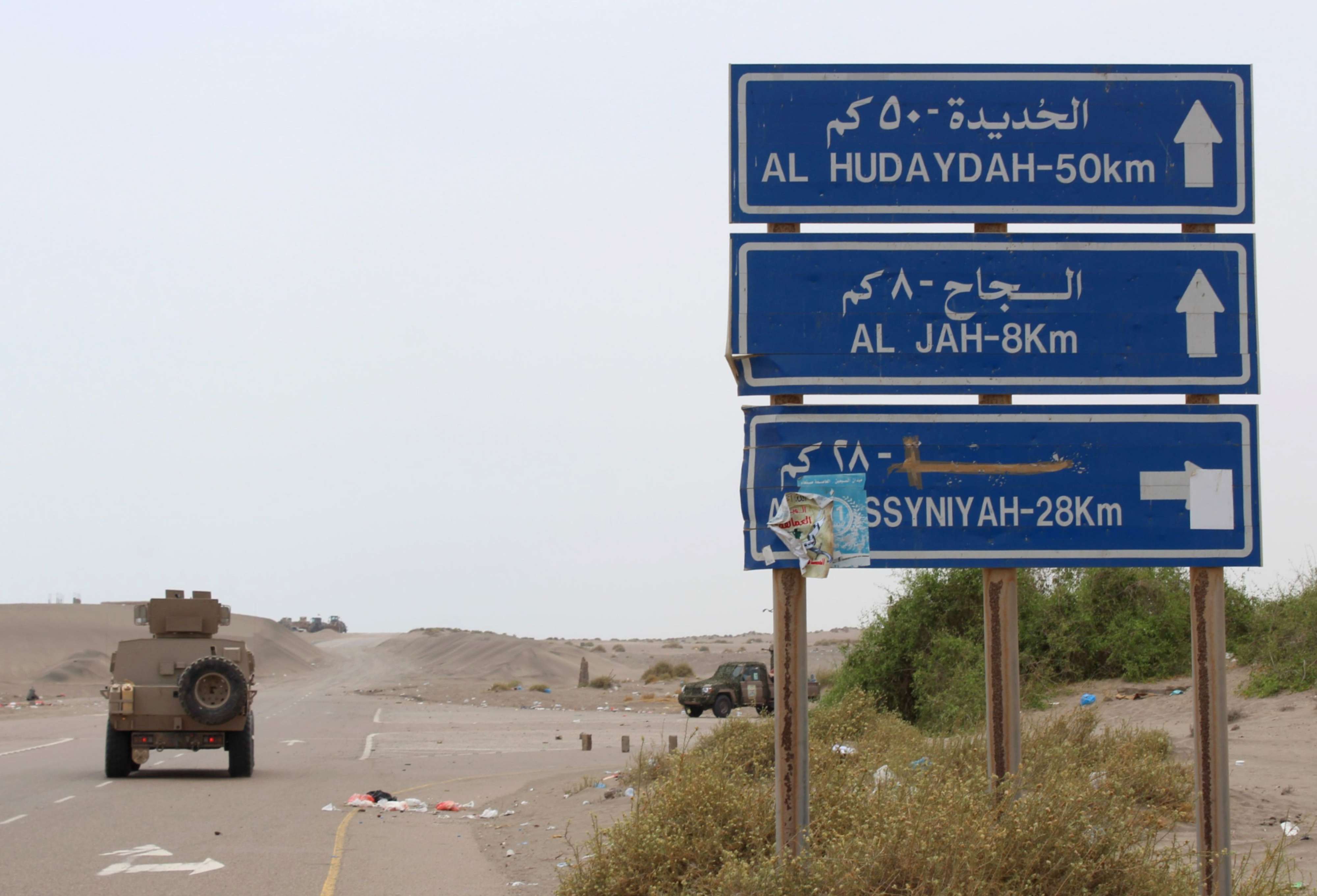Yemeni forces loyal to Abd-Rabbu Mansur Hadi and their Saudi-led allies launched an assault to retake the country's aid lifeline, a siege that could dramatically exacerbate the humanitarian crisis without tipping the balance of the war.
International aid workers had been advised to pull out as armored carriers ferried troops to the Red Sea port city of Hodeidah, the entry point for 70% of Yemen's imports and humanitarian assistance. The United Nations warned on Monday that almost two thirds of the city's 400,000 residents could die if the city is put under siege, Bloomberg reported.
In a statement on Wednesday, the Saudi-backed government said it "had exhausted all possible peaceful means" to oust Houthi forcers from Hodeidah.
In preparation for the offensive, the coalition had intensified its aerial attacks and artillery strikes on Houthi positions across Hodeidah province, and thousands of fighters, backed by helicopters, had been deployed to the front.
The Hadi government and its Persian Gulf partners hope to claim a turning point in the three-year conflict. Yet a loss or a drawn-out conflict with experienced street fighters that exacts a high civilian toll will deal another blow to Saudi efforts to win the war.
"Taking the port and the city could shut off supplies to major Houthi groups and lead to a drive to the negotiating table," said Paul Sullivan, a Middle East analyst at the National Defense University in Washington. "However, urban warfare in a city this size could prove to be costly and a lot longer than some may try to predict."
The fighting defied efforts by UN envoy Martin Griffiths to try to head off a clash.
>Acute Hunger
On Wednesday, Houthi fighters attacked the coastal road leading to Hodeidah that is used by the Saudi-led coalition. Ahead of the assault, they built concrete bunkers, positioned snipers in buildings and called in reinforcements from other areas, residents said by phone. From mosques and loudspeaker cars, they urged supporters to fight "the mercenaries of aggression," residents said.
International aid groups were warned to evacuate their staff from Sanaa by Tuesday, aid group Oxfam International said in a statement.
"An attack on Hodeidah will bring death, destruction and push vital resources like food, fuel and medicine even further out of reach," said Oxfam's Yemen chief, Muhsin Siddiquey.
During the war, the Saudi-led coalition has disrupted food and other supplies coming into Yemen by imposing a naval blockade on ports including Hodeidah in the Houthi-controlled north.
Today, three-quarters of the country's 28 million people need aid to stave off hunger and disease, and half of those require it urgently to survive, according to the UN.
Of an estimated 1.8 million children under age five who are acutely malnourished, 400,000 are so severely underfed they are at 10 times the normal risk of dying, the UN says.
>High Alert
Saudi Arabia and its allies intervened in Yemen's war in March 2015 after the Houthis took control of Sanaa and other cities, forcing Hadi into exile in Riyadh.
While the alliance has been able to recapture areas in southern Yemen, the Houthis still control Sanaa and territories in the north, and frequently fire ballistic missiles into Saudi Arabia.
"If they [the coalition] suffer heavy losses and struggle to take the city and the battle leads to high civilian casualties, it'll really undermine their standing given that they have repeatedly said this can be done quickly and cleanly," said Peter Salisbury, a senior fellow at Chatham House's Middle East & North Africa Program.
If the coalition retakes Hodeidah, it would be in a stronger position to negotiate some sort of peace or at least weaken the Houthis' position considerably, said Allison Wood, London-based Middle East and North Africa analyst at the Control Risks strategic consultancy. But even that would bring no resolution to Yemen's manifold problems, she said.
"There will be enduring political and security issues in Yemen regardless of the outcome in Hodeidah," Wood said.
>Grave Humanitarian Situation
The United Nations and International Committee of the Red Cross (ICRC) called on Wednesday for all sides in Yemen's war to protect civilians after the Saudi-led coalition launched the air and ground assault on Hodeidah.
"Under international humanitarian law, parties to the conflict have to do everything possible to protect civilians and ensure they have access to the assistance they need to survive," Lise Grande, UN humanitarian coordinator for Yemen, told Reuters by email.
In Geneva, ICRC spokeswoman Marie-Claire Feghali said the assault was "likely to exacerbate an already catastrophic humanitarian situation in Yemen," where water and electricity networks are vital to the civilian population's survival.


